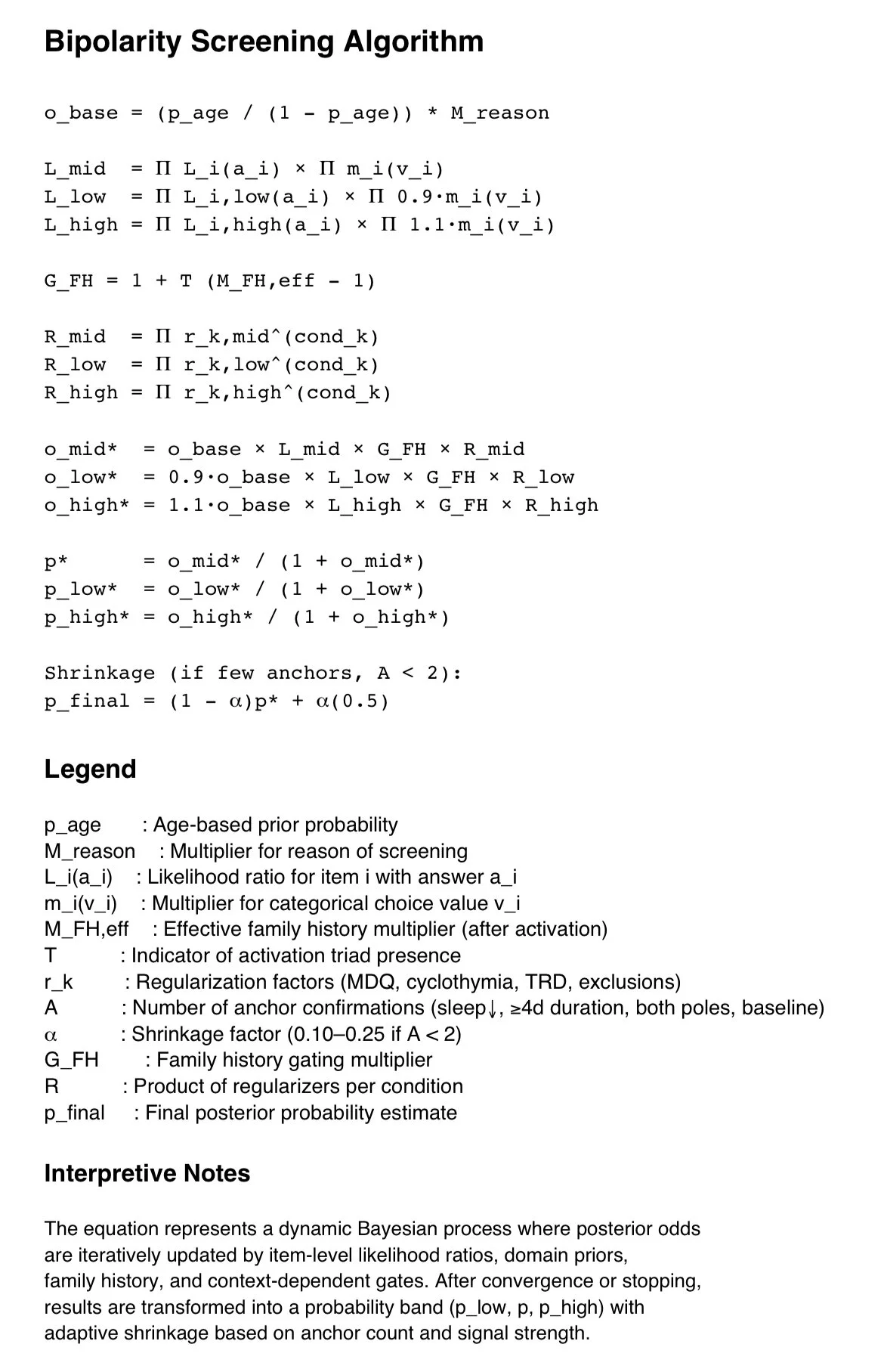About 1 in 20 U.S. adults lives with a form of bipolar spectrum disorder, yet most don’t realize it.
Nearly half of those who struggle with bipolar symptoms never receive a diagnosis or get treated for it despite it being a highly treatable condition.
On average, it takes around a decade from a person’s first major mood episode before they receive a diagnosis or treatment.
The stigma around bipolar disorder makes no sense. Up to 90% of the risk is genetic, which means many who have the condition are simply born with it.
The developer of this program wasn’t diagnosed until they were 30 years old. Their first symptoms started in middle school. Multiple therapists failed to notice the classic symptoms, session after session, year after year.
Finally getting treated for bipolar disorder changed their life.
That’s why they programed this screener with advanced logic (with help from AI) to help better detect signs of bipolarity, and made it free to the public.
If you think are experiencing mood cycles of any kind, take this screener and show the report to your doctor.
Treatment could change your life too.
About the Bipolarity Screening Questionnaire
The Bipolarity Screening Questionnaire is an adaptive tool designed to help clinicians and patients explore whether symptoms may align more closely with unipolar depression, bipolar spectrum conditions, or other mood patterns that can mimic bipolar spectrum disorder. The probability adjusts based on each response until the program feels it is certain bipolarity is or isn’t present. The report generated can help guide, but not replace a clinical evaluation by a qualified mental health professional. This screener is currently pending clinical validation and still under development, gaining new advanced logic over time to better predict the presence or absence of bipolar spectrum disorder.
*If you completed the screener and think the report doesn’t seen right, please get assessed by a psychiatrist, psychologist, therapist or get psych testing done. If the report seems like it fits we encourage you to bring it in to your care team and review it with them. Other assessments such as the “Mood Check”, and the MDQ are other screeners to consider completing to help guide the diagnostic process. Ultimately, a clinical examination by a provider qualified to determine if bipolar disorder is present is the only way to receive a diagnosis that will be a pathway to treatment.
